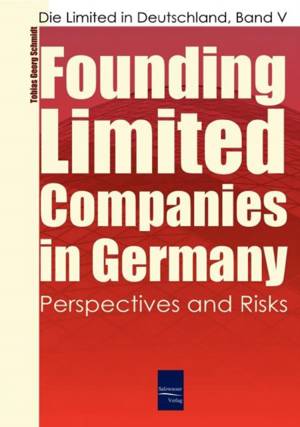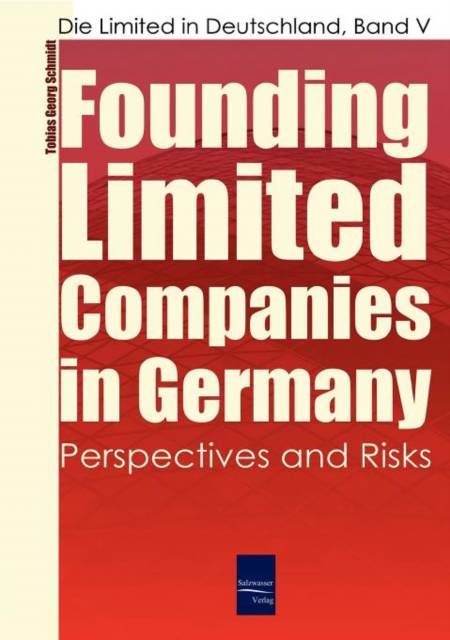
- Retrait gratuit dans votre magasin Club
- 7.000.000 titres dans notre catalogue
- Payer en toute sécurité
- Toujours un magasin près de chez vous
- Retrait gratuit dans votre magasin Club
- 7.000.0000 titres dans notre catalogue
- Payer en toute sécurité
- Toujours un magasin près de chez vous
35,95 €
+ 71 points
Description
In a globalized Europe in which everything is merging together, especially the economies, and keeping pace with the rapid development of the Internet, one can ill afford not to take a look at the Limited company. The English Limited seems to be an alternative to the German GmbH. In the course of groundbreaking decisions, made by the European Court of Justice, a new legal platform for economic activity is made available in Germany. So far, it seems to be an attractive one. The fast and uncomplicated establishment of the company, as well as the rather liberal rules of capitalization, are typically perceived as advantages of the Limited compared to the German GmbH. However, the limited - being a foreign type of company - is, first of all, an alien element in the German legal system (Just 2005, Preface). There are many questions to be answered and there is, additionally, a certain amount of legal uncertainty to be reasoned with concerning the decision of whether or not to choose the limited over the German GmbH. Also, the peculiarities, perspectives and risks of the limited are widely unknown to the general public. The purpose of this book is to provide an analysis of how an English private company limited by shares based in Germany may offer an alternative to German forms of business organization for entrepreneurs. The perspectives and risks that come hand in hand with such an establishment will also be interpreted. To begin with, I will shortly explain the history of British companies. This is then followed, firstly, by an overview of the types of companies in England, and, secondly, the two types of businesses known to British company law in which liability may be limited to the paid-in company assets. A discussion of the new rulings of the European Court of Justice (ECJ), followed by the topics of freedom of establishment, incorporation theory and real seat theory are also presented. The next chapter explicitly examines establishment and management of the limited according to English company law. In general, a branch office of the foreign company is established to engage in business in Germany. This process, as well as the taxation and the applicability of German law on this branch office are discussed in the following section. The subsequent chapter focuses on the perspectives and risks, as well as the advantages and disadvantages of a limited operating in Germany, before a final conclusion is drawn.
Spécifications
Parties prenantes
- Auteur(s) :
- Editeur:
Contenu
- Nombre de pages :
- 69
- Langue:
- Anglais
- Collection :
- Tome:
- n° 5
Caractéristiques
- EAN:
- 9783937686677
- Date de parution :
- 04-12-09
- Format:
- Livre broché
- Dimensions :
- 148 mm x 210 mm
- Poids :
- 160 g

Les avis
Nous publions uniquement les avis qui respectent les conditions requises. Consultez nos conditions pour les avis.






